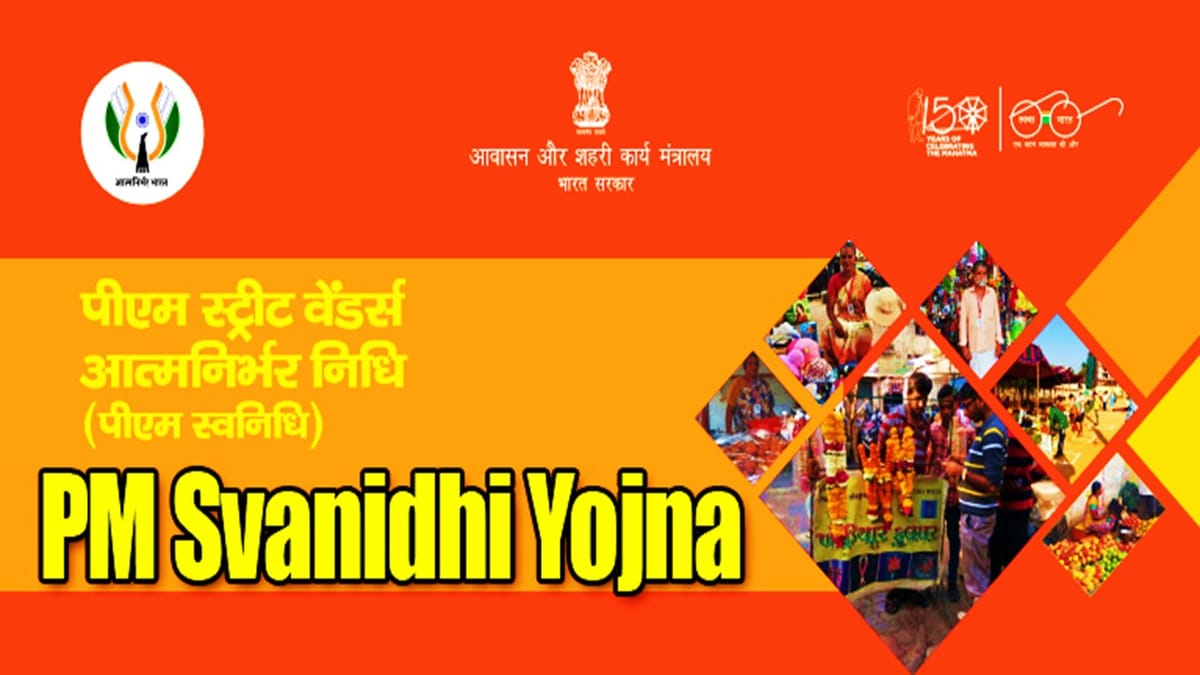Deepshikha | Jun 19, 2022 |

PM SVANidhi Scheme: Interest Subsidy, Credit Guarantee, Application Procedure & more
The PM Street Vendor’s AtmaNirbhar Nidhi (PM SVANidhi) was launched by the Ministry of Housing and Urban Affairs on June 01, 2020 for providing affordable Working Capital loan to street vendors to resume their livelihoods that have been adversely affected due to Covid-19 lockdown.
Every financial year is divided into four quarters, with each ending on June 30, September 30, December 31, and March 31. On these dates, lenders must file applications for interest subsidies, and all vendors who take out a loan under the SVANidhi Scheme will be eligible for a 7% interest subsidy, which will be deposited straight into their bank account. However, there are a few things to keep in mind:
The scheme, which is run by Credit Guarantee Fund Trust for Micro and Small Enterprises, not only considers vendors but also lenders, by offering credit risk mitigation to lenders for all loans sanctioned (CGTMSE). The system will be run on a portfolio basis, with lending institutions making claims every quarter. Here are more details on the portfolio:
With the use of a payback facility, this initiative is aimed to promote digital transactions that will raise awareness among the populace while also benefiting them. Aside from receiving cashback and ensuring safety during a pandemic, another significant benefit of using digital transactions as a method of payment for vendors is the ability to develop a credit score with each transaction.
This programme is for people who aren’t always aware of the advantages of having a good credit score. When they take out loans, it eventually turns out to be inefficient. This strategy not only informs students about the system but also helps them to develop one as they use it.
Because everyone has a smartphone these days and everyone has access to the internet, it is much easier to adopt and spread the programme. The following is a list of some of the most popular digital payment aggregators and lending organisations:
These aggregators are extremely gratifying in and of themselves. However, aside from that, the scheme also offers payback under the following conditions:
All qualified street vendors must contact a Banking Correspondent or any MFI Agent in their region to apply for loans under the SVANidhi Scheme. The Common Service Centre (CSC) has been established to assist suppliers throughout the application process. The ULBs have a list of all identified street vendors, and this personnel will lead the registered/identified vendors through the application process in compliance with the lists.
The mobile app and the portal – https://pmsvanidhi.mohua.gov.in/ – are the two options for applying. One might apply directly or with the help of the assisting bodies indicated above. To avoid crowds during the pandemic, it is critical to check and verify one’s eligibility status before entering any facilities.
The documentation required to apply for this loan is made simple and hassle-free for simpler accessibility. The following is a list of the documents you’ll need to provide during the application process:
It is easier to start a business than it is to restart one. The latest pandemic-related situations have broken and dismembered companies. At the same time, there is an enormous need for essential supplies.
This necessitates fresh opportunities as well as larger growing areas. The street sellers gain the elbow room they need to re-start their enterprises and thrive in the market thanks to the working capital loans given through PM SVANidhi Scheme. These loans, as we all know, are rewarding, advantageous, and cost-effective, allowing the vendors to resume their life on a good and stress-free note.
According to the data, a total of 41,66,224 applications were submitted, with 24,05,408 being approved. A total of $20,52,432 has been disbursed.
As a result, it is safe to assume that this strategy will reach the correct people at the right moment and in the best possible method.
In case of any Doubt regarding Membership you can mail us at [email protected]
Join Studycafe's WhatsApp Group or Telegram Channel for Latest Updates on Government Job, Sarkari Naukri, Private Jobs, Income Tax, GST, Companies Act, Judgements and CA, CS, ICWA, and MUCH MORE!"